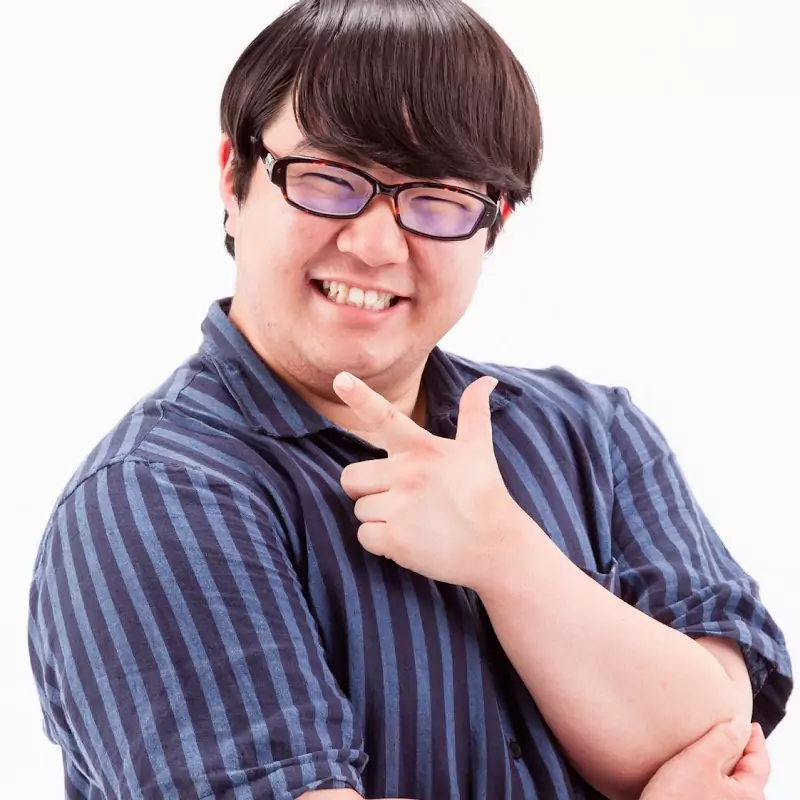:
紅豆餅配氣炸味增彩椒松阪豬。
對,你沒看錯,老爺買氣炸鍋給我了!雖然不知道是大選結果讓他太開心還是氣炸了,反正我是開心到灑花瓣啦。
這麼說當然是開玩笑的,我們家對於選舉很少有過深的激情,期望的候選人當選不會大肆慶祝、落選也不會過度沮喪,還是照常過日子。
氣炸鍋是他看到好市多正在特價,身為工...
:
紅豆餅配氣炸味增彩椒松阪豬。
對,你沒看錯,老爺買氣炸鍋給我了!雖然不知道是大選結果讓他太開心還是氣炸了,反正我是開心到灑花瓣啦。
這麼說當然是開玩笑的,我們家對於選舉很少有過深的激情,期望的候選人當選不會大肆慶祝、落選也不會過度沮喪,還是照常過日子。
氣炸鍋是他看到好市多正在特價,身為工程師,爬文比較很久+理性邏輯判斷下,決定花錢安太座,免得還要繼續聽我碎念一整年。
紅豆餅是昨日表妹來訪帶來的竹北好吃紅豆餅,不是有顏色的那家(名氣大但個人覺得還好),而是吃了會開心的那家,餅皮薄脆且料多實在,口味清爽不甜膩。
很想直接開始英文的段落,但是還是要給氣炸鍋的第一餐一點credit:昨晚用味增醃起來的松阪豬,180度氣炸七分鐘後打開來把肉片翻面,加入彩椒、洋蔥,再繼續氣炸八分鐘,天啊,出爐時邊緣那種微焦的狀態,是我用不沾鍋很難煎出來的效果啊。
星期五講到在捷運和高鐵站看到的電梯及手扶梯;今天想分享的是無障礙設施,barrier-free facilities(無界線設施),或是accessible facilities(到得了設施),強調的是這個設施的便於取得,完全不強調身體障礙使用者的需求,畢竟,不是只有身障者用得到這些設施,推著嬰兒車的父母、年長者拄著拐杖、撐著助行器,都需要無障礙設施才能自由來去。
講到身心障礙的主題,就一定要提一下英文用語的政治正確思維,也順便來學一下比較禮貌、婉轉、中性、尊重的修辭方式。
大家都知道,美國是個民族大熔爐,人民的祖先來自世界各地,有各自的文化背景;經歷了多年的種族對立傷痛後,他們非常強調平等(雖然有時候可能只是表面上的);一個用詞或是言行上的不慎,就可能被扣上歧視(discrimination)的大帽子,嚴重時是會被提告的。
政治正確(politically correct),未必跟政治有關,指的是一種出於對少數族群、或弱勢族群、或是特地人士的尊重,為了淡化歧視之意而改以中性的用語來稱呼他們,避免冒犯,惹來歧視的爭議。
所以今天,來看身心障礙相關的政治正確用語。
如同中文,說人家「殘障」vs「行動不便」,後者聽起來就沒那麼刺耳,刻意淡化了「殘」與「障」二字背後對當事人的尊嚴貶低感,只是客觀的描述「行動上的不方便」,這就是政治正確的修辭。
肢體方面的殘障,早期會說handicapped(殘障的)、disabled(喪失能力的),現在請改說physically challenged(生理上受到挑戰的。
其他感官方面的殘缺如下:以前說blind (瞎子),現在請改說visually challenged (視力受挑戰);以前說mute/dumb (啞巴),現在請改說verbally challenged (口語受挑戰);以前說deaf (聾子),現在請改說aurally challenged (聽力受挑戰。
心智方面的,以前說retarded(智障、智能不足,天啊這個詞連中文都不要用好嗎?);現在請改說intellectually/mentally challenged(智力/心智上受到挑戰的。
講到retarded這個字,原始的動詞retard是阻礙、減緩的意思,引申為弱智的意思。跟平常說的白癡、豬頭,是完全不同的概念。雖然不鼓勵罵人,但是有時候一時失神而犯傻,會用idiot,約莫就是中文說的豬頭。而moron已經是輕微的帶有冒犯性,真的是罵人家是白癡了,表示對這個人真心的感到他/她不聰明。而silly,應該算是說人家蠢笨的相關用語中,相對最輕微的用語,大部份可能是帶著親暱、調侃的口吻,嘴上說「你這個小傻瓜」,可能同時還摸摸頭、親親臉。
快速整理一下,以罵人的嚴厲(冒犯)程度排序,我認為:silly






intellectually中文 在 美國在台協會 AIT Facebook 的最讚貼文
💕「愛台灣,我的選擇」系列第16發:熱愛台灣詩的美國學者白瑞梅(Amie Parry)
「我在加州內陸地區一個叫做聖伯納迪諾的小城市長大,隨後在聖地牙哥念大學和研究所,並獲得文學博士學位。求學期間我們必須至少選修一門外語,所以我就選了中文。1987年我大學畢業之後,跟朋友來了台灣一趟,在台灣教英文和學中文六個月,接著就自己一個人當起背包客在亞洲四處旅遊。
我本來想要研究中國古典詩詞,後來因為獲得傅爾布萊特獎學金,便又再度回到台灣。當時我在討論詩詞的聚會上認識了幾位現代派詩人,所以我就將研究主題轉而聚焦在台灣60、70和80年代的現代詩。我的博士論文探討的就是,以現代主義來理解現有政治語言中難以理解的現代性。我認為歷史形塑而來的經驗,往往比語言本身還要複雜。
我研究的那些詩作沒有明確的政治性,反而是有很強的實驗性質,並帶著詭譎的神秘感。當時我認識的現代派詩人大多是跟著國民黨飄洋過海來台的外省人,他們經歷過戰爭和顛沛流離,也經歷過劇烈且痛苦的歷史創傷。每個人的經驗都不同,在那個年代,也很難說出口。後來,我寫了一本關於詩的書,並聚焦在一兩位我覺得特別有趣的詩人。我在書中問了一些類似的問題:這些詩作如何幫你思考艱難的議題?
當時的現代詩已經頗有制度,許多詩人都有投稿《現代詩》這份重要的詩刊,有些詩人則是將詩作與戲劇結合。整體而言,台灣的現代詩、表演藝術和文學都發展地如火如荼,也深深吸引了我,但我還未全盤了解。當我完成博士論文時,我便獲得交通大學的教職,讓我對台灣的學術圈感到非常驚艷。而當我出版第一本著作時,我也很訝異能在美國獲獎;我根本不知道自己獲得提名,當時我問授獎單位:「為什麼選擇我的書?」他們表示:「因為書中其中一個章節是以跨國的架構來進行整體論述,妳不是單用西方的理論和東方的詩詞,而是從東西方共同錘煉出嶄新的知識。」
我目前任教於中央大學英美語文學系,除了擔任系主任之外,我也有教授寫作課、文學課和文學文化理論課程。從我1987年第一次來台灣到現在,我覺得台灣人愈來愈能自在地與來自不同地方的人交談,就個人經驗來說,我認為台灣社會愈來愈開放。我第一次來台灣時,經歷了許多台灣社會有趣的發展,也結交了許多朋友,並認識了許多學術圈的同好。我想,這些珍貴的回憶就是呼喚我再度回台的動力;就像是,如果你覺得這個社會充滿生氣和活力,而你也能夠參與其中、做出貢獻,我想這就是像家一樣的感覺吧!」
✨白瑞梅 Amie Parry 現為中央大學英美語文學系 專任教授
💕Why I chose Taiwan #16 – Amie Parry
“I grew up in a small city in inland California called San Bernardino. I went to college and graduate school in San Diego. I got my PhD in literature. We were all expected to learn at least one language, so I did Chinese. I traveled to Taiwan with a friend right after I graduated from college in 1987. We came here to teach English and study Chinese for six months, then I traveled around Asia by myself with a backpack.
I originally wanted to study classical Chinese poetry. I got a Fulbright grant and I came back here. I started going to the poetry nights that were happening at that time. I met some of the modernist poets, and I switched my focus to the modernist poetry of the 60s, 70s, and 80s in Taiwan. I wrote my dissertation on modernism as a way of understanding the parts of modernity that are hard to know in the existing political language that we inherit. I think that experience in historical formation is always more complicated than the language.
These poems are not explicitly political; they're very experimental and strange. At the time, the modernist poets I met were mostly 外省, men who had been drafted and come over with the KMT, so they had experienced war and displacement, and a very intense and traumatic historical moment. People experienced it differently, and at that time, it was a hard thing to talk about. Later, I wrote a book about poetry, but I just focused on one or two poets I find really, really fascinating. And I was asking some of the same kinds of questions: how can these poems help you think about certain topics that are hard to think about?
At that time, Modernist poetry was a kind of an institution already. There was a journal called 現代詩, “Modern Poetry,” a really important journal that most of these poets were published in. Some of them combined poetry and theater. There's just so much going on in Taiwan in terms of poetry and performance and literature. It's just amazing. And I'm very interested in it at all, but I haven't kept up. After I finished my dissertation, I got a job offer at 交大. I thought, wow, there's something really amazing happening intellectually here. When my first book came out, it actually got an award in the U.S., and I was so surprised. I didn't even know it had been nominated. I asked them, ‘Why did you choose my book?’ And they said, because one of the chapters has a transnational of framework for the whole argument, so it wasn't like you used Western theories and Eastern texts, it's like the whole knowledge part is coming out of both places.
I currently teach in the English department at National Central University. I'm the chair and I teach writing classes, literature classes, and literary and cultural theory classes. Since my first visit to Taiwan in 1987, I think people are a little more comfortable talking to people from different places. In my personal interactions, I feel a difference, like a greater openness. Back then, there were so many interesting things happening here, all at one time, and that's the time that I happened to be here. And I made good friends in my personal life and in my intellectual life. And I think those are the things that made me come back: like if you feel that there's something interesting happening and there's some way that you can support it. I guess that's a way of feeling at home.” — Amie Parry
✨Amie Parry is professor of the Department of English at the National Central University